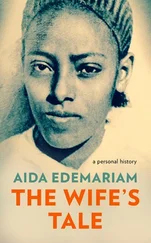But, having been denied the opportunity of distinguishing himself, he felt even less inclined to fritter his afternoons and evenings away at dinner tables or to be satisfied with the undemanding routine of regimental life. He found time to study his books on Indian affairs and even produced a long and detailed refutation of a work that had recently appeared entitled Remarks upon the Present State of the Husbandry and Commerce of Bengal. He also became a familiar figure in the corridors of both Fort St George, where Lord Hobart exercised his authority as Governor of the Presidency of Madras, and Fort William, the headquarters of the Governor-General of India.
5 The Tiger of Mysore
1799
‘Had Colonel Wellesley been an obscure officer of fortune he would have been brought to a court-martial.’
SHORE’S DAYS as Governor-General were now coming to an end. As the recently created Baron Teignmouth, he sailed home in March 1798, leaving the Government in the hands of the Commander-in-Chief, General Sir Alured Clarke, until his successor arrived in India.
This successor, whose ship, carrying a huge quantity of his baggage, docked at Calcutta on 17 May 1798, was the thirty-seven-year-old Richard Wesley, Earl of Mornington, soon to be created Marquess Wellesley of Norragh in the peerage of Ireland. The Marquess insisted upon that spelling of the family name which his brother Arthur now adopted, as did Henry whom the new Governor-General had brought out as his Private Secretary.*
The Marquess, stately and patrician, long desirous of a marquessate, did not consider an Irish title at all adequate; nor did he hesitate to inform Mr Pitt, the Prime Minister, of his feelings in the matter. But he was well satisfied with his appointment which was, indeed, in his estimation, ‘the most distinguished situation in the British Empire after that of Prime Minister of England’. 1He was also satisfied that he had ‘firmness enough to govern the British empire in India without favour or affection to any human being either in Europe or Asia’. 2
As though prompted by this assertion, his brother Arthur hastened to assure him that even he would not expect to derive any more advantage from his close relationship to the Governor-General than he would had any other person been appointed. 3All the same, he offered his services to Richard who, anxious though he was to avoid all imputations of nepotism, employed him as an unofficial Military Secretary, seeking his advice on matters that might well have been supposed the province of the staff of the Commander-in-Chief, and receiving in return detailed papers and memoranda on all manner of subjects of which Colonel Wellesley had taken the trouble to inform himself, from strategic considerations to fortifications and supplies, even to such problems as the methods which should be employed in the collection of adequate numbers of bullocks.
The Colonel’s energetic activity led him to step on a number of sensitive toes. He much offended General St Leger by opposing his scheme for the creation of an Indian Horse Artillery, bluntly pointing out that there were insufficient horses for such an establishment: bullocks were the answer. He was also on extremely bad terms with Lord Hobart, Governor of the Presidency of Madras, whom he had much annoyed by openly opposing the appointment of General John Braithwaite to the command of the abortive expedition to Manila. Hobart had given the command to Braithwaite on the grounds that he was the senior officer and would be well supported by a reliable staff and a good army. ‘But he is mistaken,’ Colonel Wellesley objected, ‘if he supposes that a good, high-spirited army can be kept in order by other means than by the abilities & firmness of the Commander-in-Chief.’ 4Colonel Wellesley’s forthright criticism of the Governor’s decision had resulted in his receiving in reply such a letter as, ‘between ourselves’, he indignantly told his brother Richard, ‘I have been unaccustomed to receive & will never submit to’. 5
It was considered ‘most unfortunate’ that there should be quarrels and disagreements like these in high places when affairs in India were in such a critical state.
The area of the sub-continent administered by the British authorities was a very small proportion of the whole. There were still enormous princely states from Oudh in the north to Mysore and Travancore in the south with the sprawling territories of the Mārāthas and the Nizam of Hyderabad between them. Relations between these states and the East India Company were very uncertain, while French influence in India was still strong. There had been persistent outbreaks of hostilities, most recently between the British and Mysore whose Sultan, Tippu, known as the ‘Tiger of Mysore’, remained an inveterate enemy of British power.
The Governor-General proposed a pre-emptive strike against Tippu. He had heard that the French, who had landed a large expeditionary force in Egypt, were preparing to support the Sultan in an attempt to drive the British out of India. It would surely be wise to attack Mysore before the French alliance materialized. Colonel Wellesley disagreed. He did not take the threat of immediate French intervention too seriously. There were, at present, very few French troops available; and, if more were to be sent from France, they would have difficulty in evading the attention of the British fleet. It would be far better, he argued, to leave the Sultan in no doubt as to the Governor-General’s determination not to tolerate French interference in India and to give him an opportunity to deny that he wished to encourage it. ‘In the meantime,’ he concluded, ‘we shall be prepared against all events.’
In August 1798 he sailed with the 33rd for Madras. It was a highly unpleasant voyage in which his ship sprang a leak and an impure supply of water led to an outbreak of dysentery which cost him the lives of fifteen men and days of illness himself. He had already had cause to complain of the management of the sick soldiers by ships’ surgeons at sea, and had issued regimental orders for the supply of clean water, the fumigation of the lower decks, the scrubbing of hammocks, regular exercise with dumb-bells, the washing of feet and legs every morning and evening and the frequent dowsing of their naked bodies with bucketfuls of water, as well as the dilution of their allowance of spirits with three parts of water. He now castigated the commissariat for supplying his men with bad water: it was ‘unpardonable’ and he would be forced to make ‘a public complaint’ of the men responsible. 6
In Madras Colonel Wellesley found Lord Clive installed as Governor of the Presidency in succession to Lord Hobart. Lord Clive was a very different man from his father, the great Governor of Bengal. Had he been born with a different name it is most probable that he would not have risen so high in the service of the East India Company. ‘How the Devil did he get there?’ asked Lord Wellesley. 7It was a question difficult to answer; for Lord Clive was ponderous in both thought and speech, though, it had to be conceded, of a remarkable physical vigour which was to last him into old age when, in his eightieth year, by then the Earl of Powis, he could be seen digging in his garden in his shirtsleeves at six o’clock in the morning. Despite his apparently stodgy temperament, he struck Colonel Wellesley as being probably not as dull as he appeared or as people in Madras took him to be. ‘Lord Clive opens his mind to me very freely upon all subjects,’ Colonel Wellesley reported. The truth is that he does not want talents, but is very diffident of himself … He improves daily.’ So the Governor-General was persuaded to change his mind about Lord. Clive. Indeed, it was not long before the Governor-General was convinced that he was ‘a very sensible man’. Certainly, as Governor, Lord Clive was quite ready to cooperate fully with the military men, both in Calcutta and in his own Presidency of Madras, in whatever were considered to be the best interests of British India. 8
Читать дальше











